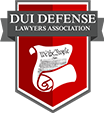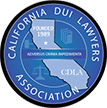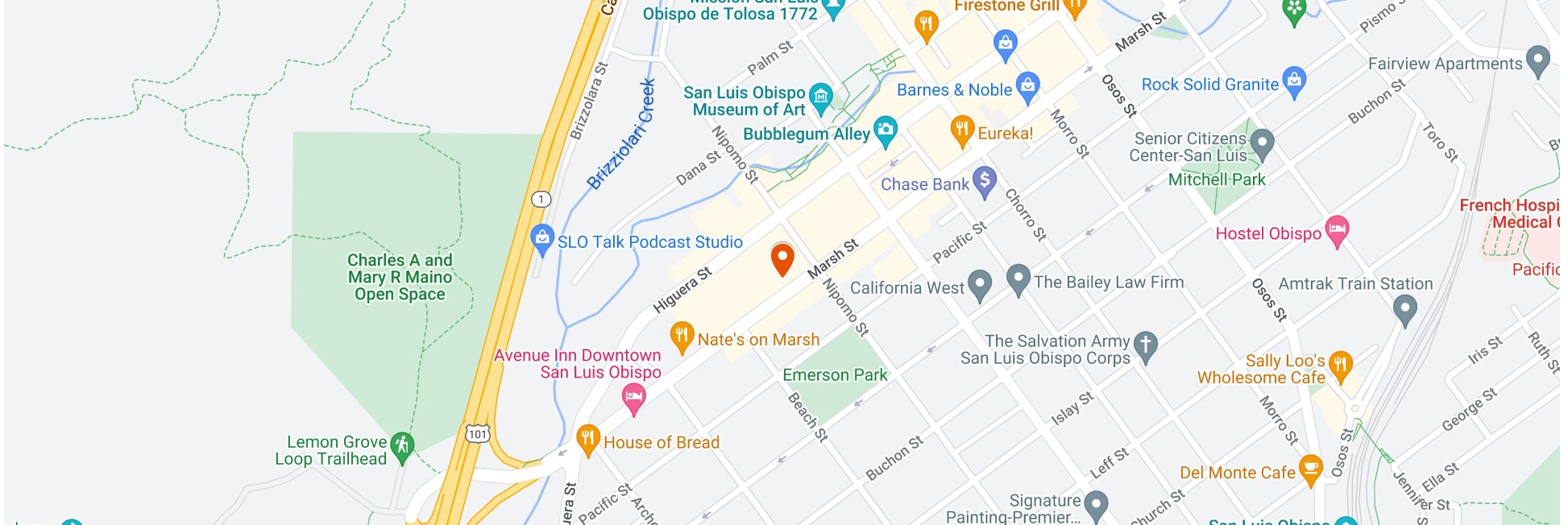Underage motorists who drink alcohol and drive in San Luis Obispo break California DUI laws. Driving under the influence of alcohol is a crime that attracts harsher sentencing for minors than for adult drivers in California. Although 18-year-old drivers in California are mature, they are not allowed to consume alcohol until they turn 21.
California law has a zero-tolerance policy on underage drunk driving. Many drivers regard a blood alcohol level (BAC) greater than 0.08% as a DUI offense. However, a DUI penalty for underage drivers could result from a blood alcohol level of 0.01%. Therefore, even if you drink half a can of light beer, which might not physically impair your driving ability, you could still be arrested for DUI if you're a minor.
You need the representation of a competent DUI attorney if you are arrested for underage DUI. At San Luis Obispo DUI Attorneys, we will help you build solid defense strategies to challenge your charge if you are being investigated for underage DUI.
California “Zero Tolerance” Law for Underage Drinking and Driving Under California VC 23136
Whether or not alcohol affected or compromised your driving ability, you can still break California's VC 23136 zero-tolerance statute for underage drinking and driving. Even if your blood alcohol level (BAC) is below the legal limit, you could violate the zero-tolerance regulation if it is quantifiable.
It is not a crime to break California zero-tolerance statutes. However, your driver's license could be suspended due to the offense. If you violate VC 23136 for the first time, the California DMV may suspend your driver's license for a year. However, if you have a history of breaking California's zero-tolerance legislation, a further violation could result in a two-to-three-year suspension of your driver's license.
The preliminary alcohol screening test (PAS) is used by law enforcement to gauge your level of intoxication. The police could use a Breathalyzer-like apparatus to conduct the PAS test at the roadside. The device measures your blood alcohol percentage. Also, police use a DUI chemical test to determine intoxication following an arrest for underage DUI. To decide whether or not you are driving under the influence of alcohol, the police may perform a breath test or blood test.
Elements of the Crime
The prosecution must prove beyond a reasonable doubt some aspects before the court can find you guilty following Vehicle Code 23136. The elements include:
- The arresting officer stopped you while driving.
- Upon measuring your BAC level, the officer found that you had a BAC of between 0.01% and 0.05%.
Penalties, Sentencing, and Punishment for Underage DUI
A violation of 23136 VC is not in and of itself illegal. The only consequence of breaking this legislation is a mandatory license suspension or revocation. The driving privilege will be suspended or revoked for a year if it is the first infraction. Additionally, your license may be suspended or revoked for three or two years if you have a history of driving while intoxicated.
Underage Driver with a Blood Alcohol Content (BAC) of 0.05% or higher, California VC 23140
Anyone under 21 who is driving while intoxicated is prohibited per California Vehicle Code 23140. The phrase "underage DUI" has been used to describe this. 9
A post-arrest DUI chemical test will typically confirm the BAC following an arrest for underage DUI. It will either be a DUI chemical or a breath test.
Sentencing for Driving With A BAC Of 0.05% Or Higher
The violation of California Civil Code 23140 is not a serious crime compared to California's felonies and misdemeanors. If you break the juvenile DUI rules of California, you will not go to jail. However, there are further consequences for breaking VC 23140. According to California law, the common punishments for underage DUI are:
- Your driver's license will be suspended for a year following your first underage DUI.
- You could be subject to a $100 fine for a first VC 23140 violation.
- If you are over 18, the court may order that you complete an alcohol and drug education program that must last at least three months.
Actual Impairment or a BAC of 0.08% or greater, California VC 23152
If you are impaired or have a BAC of 0.08% or above, the prosecution could charge you under California Vehicle Code 23152. You could face charges in the following situations:
- Due to the use of drugs and alcohol, your ability to operate a vehicle was impaired, which is against Vehicle Code 23152(a).
- You violated Vehicle Code 23152(b) when you drove with a blood alcohol concentration of at least 0.08%, violating California's DUI regulations.
Punishment for Standard/ Adult DUI
Violating VC 23152 is considered in California. If you are charged with being an underage driver for the first time under this law, and no one is hurt, you will probably be subject to the following punishments:
- Suspension of your driver's license for a year.
- Serving three to five years in summary probation.
- The court could order you to pay fines between $390 to $1,000.
- drug and alcohol treatment program for three to nine months
- Maximum six-month incarceration, though in unusual circumstances
Other adult-related DUI charges for drunk driving, such as the following, may also apply to a young driver:
- California Vehicle Code 23152(f) prohibits driving while under the influence of narcotics.
- Driving while intoxicated and causing an injury is against California Vehicle Code 23153.
- Driving while intoxicated and causing a death violates California Penal Code 191.5.
- DUI, or Watson's murder, constitutes a California Penal Code 187 offense.
What Happens If An Underage Driver Refuses To Take A Breath Test?
Your driving privileges will be suspended for at least a year if you refuse to take or don't complete a PAS or post-arrest test. If you have one or more priors for any of the following, the California DMV (department of motor vehicles) may suspend your ability to drive for two or more years:
- Refusing to undergo a chemical test.
- A California VC 23103.5 violation.
You have the right to appeal the DMV's decision to suspend your license, even if it was due to your refusal to submit to a chemical test. You must request a DMV administrative hearing to do this. Please take note that this hearing is not automatic. Within ten days following your arrest, you have to request it. Unless you request that the department hold the hearing in person, the hearing will typically be held over the phone.
In general, a lawyer will conduct the entire hearing on your behalf and can represent you at this hearing. The DMV will reverse the license suspension or revocation if you win the hearing. But even if you lose, not everything is lost. Then, you could:
- The DMV administrative hearing officer's decision may be challenged by submitting a written request and paying $120 within fifteen days of receiving notification of the hearing officer's decision.
- Apply for a limited license for "critical use" (unless your license suspension occurred due to refusing to undergo chemical testing)
You can regain your driving privileges following the expiration of the license suspension period by:
- SR-22 filing as proof of financial responsibility
- Preserving evidence of financial obligation for a maximum of three years
- Paying a $125 reissue fee to the department of motor vehicles
If you lose the DMV hearing, you might still be eligible for a restricted or "critical use" license. Similar to a learner's permit, this particular license. If you don't have access to other forms of transportation, you can use them to drive to and from your job or school. However, if your license was suspended because you refused to submit to a chemical test, you won't be able to get this one.
Challenging The Suspension Of Your Driver’s License
Even if they reject the chemical tests, minor drivers can appeal the suspension of their license. You can challenge the license suspension by asking for a DMV hearing within ten days of receiving a citation for an underage DUI. The DMV hearing is different from the DUI criminal case, and if you are found guilty, the court may order a suspension. However, you can testify in support of yourself, present evidence, and question the witnesses.
A hearing at the DMV is less formal and can be conducted over the phone. At the hearing, you might try to refute the accusations that you were driving while intoxicated. The hearing officer will reverse the suspension if you prevail in the DMV hearing, allowing you to continue driving. A stronger plea bargain in your criminal case is more likely if you prevail in this hearing.
Your driver's license will be suspended or revoked if you lose the DMV hearing. An underage driver who has had their license suspended may apply for a limited hardship allowance to continue driving to and from work or school. But it's important to know that if your license was revoked because you refused a chemical test, you are not eligible for a limited license.
Obtaining A “Restricted” Drivers License as an Underage
You might ask whether a minor can obtain a limited driver's license in California. Yes, it is the answer. A restricted license, which is comparable to the learner's permit, can be obtained by an underage driver. You can drive to and from work or school with a restricted license, especially if you don't have access to alternative forms of transportation.
However, if your license was suspended because you refused to take a DUI chemical test, you are not qualified to obtain a restricted driver's license.
Legal Defenses to Violation of California VC 23140
Your DUI lawyer could help build a solid defense to challenge the prosecution’s evidence if you face underage DUI charges in California. Below are the common legal defenses to fight underage DUI charges, including:
You Were on a Low Carbohydrate Diet and High Protein Diet
Ketones, produced by specific diets and medical treatments, could have similar chemical elements to alcohol. Your breath may smell like alcohol to police officers, who may assume you have been drinking. An additional chemical test after some time could confirm the officer's suspicions.
However, the discovery of your BAC and the subsequent confirmation of its existence may not always indicate that you have used alcohol. Ketones are generated when the liver breaks down the body's stored fat to produce energy. The body releases ketones most frequently under the following circumstances:
- When your blood sugar level is lower than usual, you have hypoglycemia.
- Eating a diet rich in protein and low in carbohydrates.
- Diabetes
- Fasting
Most DUI breathalyzers cannot distinguish between ketones and blood alcohol levels. As a result, your lawyer could use a medical expert to support your case. Furthermore, establishing your ailment will be significantly helped by your medical past.
You Suffer a Medical Condition Like Acid Reflux or GERD
You might record erroneous BAC readings if you suffer from specific medical disorders like acid reflux, GERD, or hiatal hernia. You may have consumed alcohol, but your BAC is well below the 0.05% threshold required for a motorist under 18. Your BAC test results, however, show that you are much over the permitted limit. Possible causes of the misleading BAC readings include underlying medical issues. Stomach acid frequently refluxes into the esophagus due to the medical diseases listed.
The esophagus joins the stomach to the neck. As a result, having alcohol in your gut could cause mouth alcohol and lead to inaccurate BAC readings. You may be able to contest the DUI accusations if you have underlying medical issues that could affect your BAC findings.
Alcohol Discovered in Your Mother Was Another Source Like Mouthwash
Alcohol in cough syrup or mouthwash is a typical defense for underage DUI. Alcohol traces could be left in your mouth from mouthwash with alcohol and cough syrup. A DUI breath test equipment may automatically detect alcohol, even if it hasn't been absorbed into the blood or is manufactured alcohol. You could test positive for alcohol on a DUI breath test even if you didn't consume any, which would result in high false BAC readings. As a result, you could refute your DUI allegations by claiming that you used mouthwash or cough syrup.
You Had a Rising BAC During the DUI Test
Following alcohol consumption, blood alcohol levels increase 30 to 2 hours later. Therefore, it is feasible for the BAC to have measured above the legal limit when the test was conducted yet below the limit when the driver was behind the wheel.
Chemical testing for DUI is presumed to be accurate by law unless otherwise demonstrated. Therefore, it is the responsibility of the defense to show that the results are false. Thus, it is crucial to provide the testimony of an expert witness.
Your BAC test findings will be incorrect, and a forensic toxicologist will explain why to the judge. Some of the factors that influence alcohol absorption and hence the BAC level include:
- Your alcohol tolerance
- Your height, weight, the proportion of body fat, or body type
- Substance interactions
- Sickness
- How soon did you down the beverage?
- The type of alcohol consumed – Beer has a lower alcohol concentration than hard liquor.
- Tiredness
The Arresting Officer Failed to Follow Proper California DUI Chemical Test Procedures
If you believe that the arresting and testing officer did not adhere to the required testing protocols, you may be able to contest the juvenile DUI accusations. The statute specifies the protocols police officers must follow while administering breathalyzer tests, blood tests, and DUI urine testing. The prosecution will use the findings of the DUI test to file charges against you. However, you and your attorney may contest the validity of the DUI test findings if the police did not follow Title 17 at the time of the test.
The DUI Testing Equipment Was Faulty
Every testing tool and piece of equipment will eventually break down. The same is true for breathalyzers. The police might utilize their occasionally falsified findings to strengthen their case against you. The U.S. Constitution's Title 17 contains rules the police must follow to ensure that breathalyzers produce accurate readings. For example, a breathalyzer needs to be calibrated after 150 usage or every ten days. You should be able to use a flawed breathalyzer as a justification for not driving under the influence if the equipment was not properly maintained or calibrated.
The Arresting Officer Failed to Advise You Fully and Clearly of Your Miranda Rights
Before asking any questions about the case, arresting officers must read and comprehend the Miranda warnings given to the suspect. Frequently, the police disregard or completely forget about this and instead ask a defendant for information and evidence. If that were to occur, you might be able to use police misconduct following your arrest to get part of the evidence used against you suppressed in court. The constitution protects everybody's rights. You must be informed of your rights, such as keeping silent following an arrest or getting counsel at the outset of a judicial proceeding.
The Traffic Officer Had No Probable Cause to Stop or Arrest You for DUI
Before stopping you, a police officer must have a reasonable basis to believe you are impaired. You cannot simply be stopped and have a DUI investigation begun. Instead, they should have had cause to suspect that you were engaging in an infraction like reckless driving. They ought to have a good reason to arrest you even after pulling you over and looking into your possible DUI. For instance, the police may have to make your arrest to question and test you further if your breath smells like alcohol, you have watery eyes, or you failed the field sobriety tests.
You Were Not Driving During Your Arrest
If there is no evidence that you controlled the car, you cannot be held accountable for a drunk driving violation. At the underage DUI trial, the prosecution must establish beyond a reasonable doubt that you were operating a vehicle while intoxicated. Traffic cameras, the arresting officer's testimony, and your admission might all be used as driving proof. Most crimes go unnoticed by law enforcement, and when they do, you've already exited the car when they appear. You might therefore contest that you were in control of the vehicle.
Find a DUI Lawyer Near Me
California has adopted a harsh position regarding enforcing its rules against driving while impaired by drugs or alcohol. As a result, when a motorist is under twenty-one, there is a zero-tolerance law in place. Under California Vehicle Code 23136, underage drivers may be arrested and charged with underage DUI if they operate a vehicle with a negligible BAC. Contrary to typical DUI regulations, there is no need to provide evidence that the driver was intoxicated. Only the amount of alcohol in their system will be used to determine whether they are arrested and convicted.
DUI charges against underage motorists attract various punishments, most of which will impact their driving privileges. Due to the low blood alcohol level required for conviction, a health issue or the use of drugs like mouthwash may cause the BAC to increase. An underage DUI conviction could be affected for many reasons.
Therefore, it is crucial to fight the accusations with the help of a competent DUI lawyer. If you are charged with a DUI in San Luis Obispo, California, our defense team at San Luis Obispo DUI Attorneys is on standby to fight for your rights. Contact our able attorneys at 805-321-1000, so we can help you with building a solid defense.







